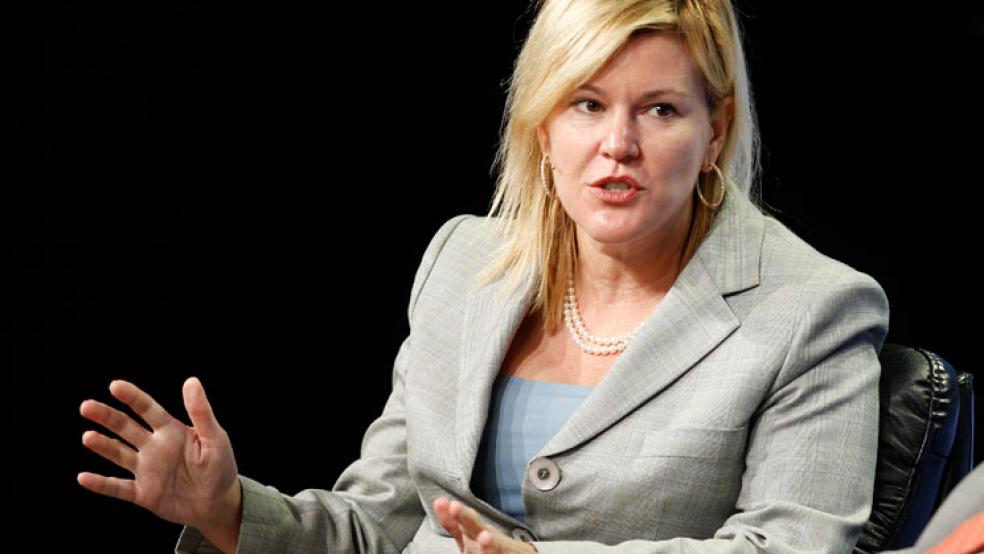Former star financial analyst Meredith Whitney has finally resolved a nasty legal battle, but her hedge fund appears to have little money left.
Executives at Europe-based hedge fund firm BlueCrest Capital Management have dropped their suit against Whitney, according to a legal filing in New York State Supreme Court on June 1. The unnamed executives had been the largest backers of Kenbelle Capital, investing $50 million in the American Revival Fund when it launched along with the firm in 2013.
BlueCrest asked for all its money back in October 2014—then $46 million—citing poor investment performance, according to the BlueCrest legal complaint in February of this year (the firm originally filed an action against Whitney in December in Bermuda, but the case was moved to New York).
Whitney refused to return the capital, saying it went against an agreement to have the investment in place for at least two years and the immediate withdrawal would hurt other investors, according to an affidavit by Whitney from February (she also noted "threatening and hysterical emails" from BlueCrest co-founder Michael Platt about getting the money back).
Read MoreBlueCrest backs Meredith Whitney's American Revival fund but others shrug
The amount of capital still managed by Kenbelle is unclear. The firm's regulatory assets under management, a type of disclosure that can be exaggerated due to borrowed money, were just $49.5 million as of Dec. 31, according to a March 13 filing with the Securities and Exchange Commission, its most recent.
It was unclear if the settlement allowed for BlueCrest to get back all or part of its money. Regardless, $49.5 million is tiny by hedge fund standards; $100 million is a traditional benchmark for a young firm to have a chance to cover costs and thrive later on, assuming strong performance.
It was also uncertain if any new money has put into the fund since Dec. 31.
Stanley Arkin, Whitney's lawyer, declined to comment on the undisclosed terms of the settlement or the future of the firm, saying only that his client is "a most extraordinary and talented woman." A spokesman for $12 billion BlueCrest also declined to comment.
Read MoreThe stocks top hedge funds love
Whitney is best known for her prediction as an Oppenheimer analyst of the subprime mortgage collapse and Citigroup's frailty before the financial crisis. Kenbelle was set up to build on Whitney's 2010 warning about an impending wave of municipal bond defaults and invest in stocks based on the "the new geography of U.S. prosperity," according to marketing materials.
The fund suffered losses, however, declining approximately 11 percent, gross of fees, from January through the end of November in 2014, according to the BlueCrest complaint. Recent return information was not available.
Top Reads from The Fiscal Times




